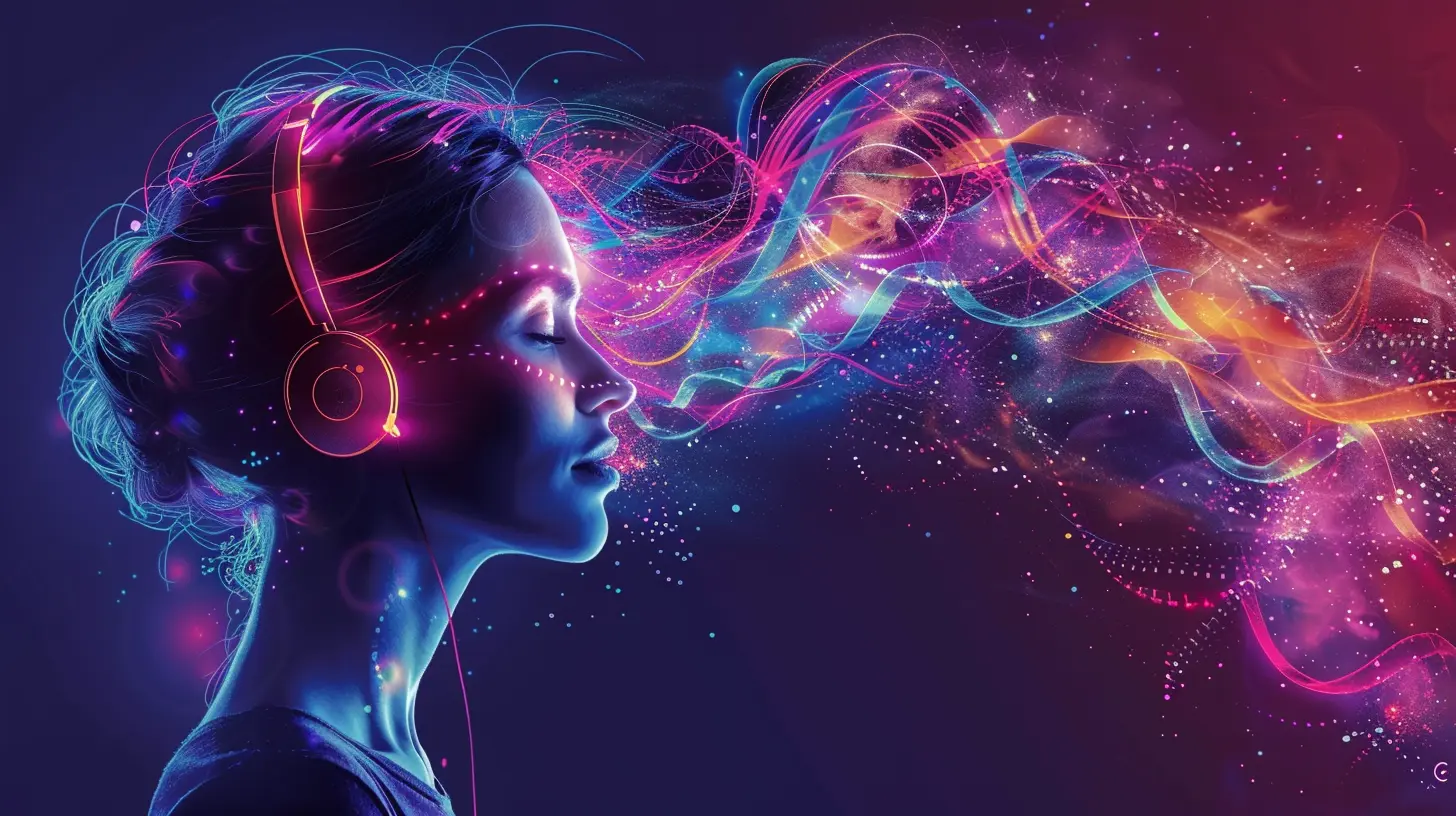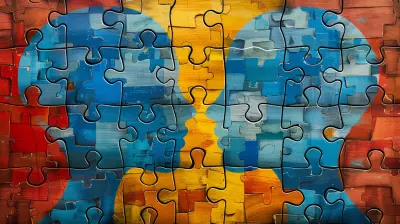Exploring the Power of Music for Emotional and Physical Well-Being
13 December 2024
Have you ever had one of those days when you feel completely overwhelmed, and then, out of nowhere, your favorite song comes on, and everything just seems a little brighter? That’s the power of music. It can elevate your mood, calm your nerves, or even get you pumped up for a workout. But did you know that music doesn’t just make you feel good? It also plays a significant role in both emotional and physical well-being.
In this blog, we’ll explore how music impacts our emotions, body, and mind, and why it’s more than just a form of entertainment. So grab your headphones, sit back, and let’s dive into the fascinating ways music affects us.

The Emotional Impact of Music
Music and Mood Regulation
Ever noticed how different types of music can evoke distinct emotions? Some songs make you want to dance your heart out, while others hit you right in the feels. That’s because music has the unique power to tap into our emotions and regulate our mood.Scientific studies have shown that listening to music triggers the brain’s reward centers, releasing dopamine — the "feel good" neurotransmitter. This is why you might feel a sense of euphoria or even relief when you listen to your favorite tunes. Music can act like a mood-boosting pill, except it doesn’t come with any nasty side effects!
Think about it: When you're feeling down, you might put on a slow, reflective song to match your mood. On the other hand, if you need a boost of energy, you’ll probably opt for something with a fast tempo. Music helps us process emotions, making it a great tool for emotional regulation.
Music as Emotional Expression
Music is also a fantastic way to express emotions that we might not be able to put into words. Whether it's writing lyrics, playing an instrument, or even just singing along to a song, music gives us a voice when words fail us. And let’s be honest, sometimes all you need is a good cry to a sad song to feel a little lighter.Interestingly, music can also evoke emotions that we didn’t even know were there, uncovering feelings that may have been buried deep down. This is why music therapy is often used to help individuals process complex emotions, whether they are dealing with grief, anxiety, or even trauma.
Music and Memory
Have you ever heard a song from your past and immediately been transported back to a specific moment in time? That’s because music and memory are intricately linked. Certain songs can trigger memories, both good and bad, and bring back emotions associated with those memories.In fact, studies have shown that music can even help people with memory-related conditions like Alzheimer’s. Music triggers areas of the brain associated with memory, helping patients recall events and emotions from their past. It’s almost like music is a time machine, allowing us to revisit memories long forgotten.

The Physical Benefits of Music
Music and Stress Reduction
Life can be stressful, there’s no doubt about it. But did you know that music can significantly reduce stress? When you're feeling anxious, putting on some calming tunes can help lower your heart rate, reduce blood pressure, and decrease levels of the stress hormone cortisol.Slow, soothing music — think classical or instrumental — has been shown to have a calming effect on both the mind and body. This is why many people turn to music during meditation or yoga sessions. It helps them relax, unwind, and find a sense of inner peace.
Pain Management
It might sound a bit far-fetched, but music can actually help with pain management. How? Well, it’s all about distraction and mood enhancement. When you're focused on the music, you're less likely to focus on the pain. Plus, listening to your favorite songs can release endorphins, the body’s natural pain relievers.Research shows that patients who listen to music before, during, or after surgery tend to experience less pain and anxiety compared to those who don’t. It’s like having a natural painkiller — without the side effects!
Music and Physical Performance
Ever wonder why so many people bring their headphones to the gym? It's not just to block out the sound of grunting weightlifters. Music can actually improve your physical performance!Upbeat, fast-paced music can increase your endurance, improve coordination, and even help you push through that last mile on the treadmill. It’s almost like having your own personal cheerleader in your ear, encouraging you to keep going. Studies have shown that listening to music during exercise can boost performance by reducing the perception of effort, meaning you won’t feel as tired — even if you’re working just as hard.
Next time you’re hitting the gym, try syncing your playlist to your workout. You'll be surprised at how much further you can go with the right music pumping you up.

Music Therapy: A Powerful Tool for Healing
What Is Music Therapy?
Music therapy is a clinical and evidence-based practice that uses music interventions to accomplish individual goals such as reducing stress, improving mood, and enhancing cognitive functioning. Certified music therapists work with clients to address physical, emotional, cognitive, and social needs through music.Music therapy is used in a variety of settings, including hospitals, schools, mental health facilities, and even in private practice. It’s particularly effective for individuals dealing with conditions like depression, anxiety, PTSD, and even those recovering from physical injuries.
How Does Music Therapy Work?
Music therapy can take many forms. Sometimes it involves listening to music, while other times it might include writing songs, playing instruments, or even improvising melodies. The goal is to use music as a tool to help individuals process emotions, improve communication, and enhance overall well-being.For instance, in a session with someone dealing with depression, a music therapist might encourage the patient to create a playlist of songs that reflect their emotions. By discussing the music and the emotions it evokes, the therapist can help the individual gain insight into their feelings, offering a therapeutic way to cope with their condition.
Who Can Benefit from Music Therapy?
The beauty of music therapy is that it’s versatile and can be tailored to fit each person’s unique needs. It’s beneficial for people of all ages — from children to the elderly. It’s commonly used to help individuals with:- Mental health disorders: Anxiety, depression, PTSD, and stress
- Neurological conditions: Alzheimer’s, Parkinson’s, and stroke recovery
- Physical rehabilitation: Injury recovery, surgery recovery, chronic pain management
- Developmental challenges: Autism, ADHD, speech delays
In essence, music therapy is a powerful tool that can promote healing on both emotional and physical levels.

How to Incorporate Music into Your Daily Life for Better Well-Being
You don’t need to be a professional musician or attend music therapy sessions to reap the benefits of music. Music’s healing power is accessible to everyone, and there are plenty of ways you can incorporate it into your daily life:1. Create Playlists for Every Mood
Sometimes all you need is the right song to match your mood. Try creating different playlists for specific emotions or activities — like an energetic playlist for workouts, a calming playlist for relaxation, or a motivational playlist for when you need a little extra boost.2. Use Music for Meditation or Yoga
If you’re into meditation or yoga, try incorporating calming music into your practice. Soft, instrumental tunes can help you focus, relax, and get into the flow of the moment.3. Sing or Dance It Out
Don’t be afraid to sing along to your favorite songs or dance like no one’s watching. Singing and dancing are fantastic ways to release pent-up energy and let loose. Plus, it’s just plain fun!4. Incorporate Music into Your Daily Routine
Whether you’re cooking, cleaning, or commuting, try playing background music to enhance your daily activities. Music can turn mundane tasks into enjoyable experiences and make time fly by.5. Explore Different Genres
Step out of your musical comfort zone and explore new genres. You might discover that classical music helps you focus, jazz relaxes you, or reggae lifts your spirits. You never know what new tunes might resonate with you.Conclusion: The Universal Power of Music
Music isn’t just something we listen to for fun; it’s a universal language that has the power to transform our emotional and physical well-being. Whether it’s lifting our spirits, helping us cope with stress, or even improving our physical performance, music has a profound impact on our lives.So next time you’re feeling down or need a little extra motivation, turn to music. It’s always there for you — like a loyal friend who knows exactly what you need to hear.
all images in this post were generated using AI tools
Category:
Mind And Body ConnectionAuthor:

Alexandra Butler
Discussion
rate this article
14 comments
Lisette Sheppard
This article beautifully highlights how music serves as a powerful tool for enhancing emotional and physical well-being. Whether it’s uplifting our mood or aiding in relaxation, the benefits are undeniable. It’s fascinating to see how something so simple can have such profound effects on our mental health. Great insights!
February 8, 2025 at 4:37 AM

Alexandra Butler
Thank you for your thoughtful comment! I'm glad you found the insights on music's impact on well-being resonant.
Raven Wade
Thank you for this insightful article! It beautifully highlights how music can profoundly enhance our emotional and physical health.
February 1, 2025 at 4:40 AM

Alexandra Butler
Thank you for your kind words! I'm glad you found the article insightful. Music truly is a powerful force for well-being!
Jennifer McAlister
What a fascinating exploration! It’s intriguing how music can shape our emotions and well-being. I’d love to hear more about specific genres or techniques that might enhance this connection even further. Keep up the great work!
January 28, 2025 at 4:31 PM

Alexandra Butler
Thank you for your kind words! I’ll definitely delve into specific genres and techniques in future articles—stay tuned!
Wyatt Beck
This article beautifully captures how music can transform our emotional and physical health. Its ability to uplift and heal is truly remarkable. Thank you for highlighting this powerful tool for well-being—music really is a universal language of healing!
January 23, 2025 at 5:13 PM

Alexandra Butler
Thank you for your thoughtful comment! I'm glad the article resonated with you and highlighted music's incredible healing power.
Juliana Barlow
What a wonderful read! Music truly has a unique way of connecting with our emotions and enhancing our well-being. It's amazing how a simple song can uplift our spirits or even provide comfort during tough times. Thanks for sharing these insights! 🎶
January 19, 2025 at 4:42 PM

Alexandra Butler
Thank you so much for your kind words! I'm glad you found the insights resonant—music truly is a powerful tool for our well-being! 🎶
Niva Chavez
This article insightfully highlights the profound impact of music on emotional and physical well-being. By integrating scientific research with personal anecdotes, it effectively demonstrates music's capacity to enhance mood, reduce stress, and foster connections, underscoring its therapeutic potential.
January 15, 2025 at 5:36 PM

Alexandra Butler
Thank you for your thoughtful feedback! I'm glad you found the integration of research and personal stories compelling in showcasing music's therapeutic benefits.
Victor Estes
Absolutely love this! Music truly is a magical tool for enhancing our emotional and physical health. It's amazing how a simple melody can uplift our spirits and bring joy to our lives! 🎶✨
January 13, 2025 at 6:09 AM

Alexandra Butler
Thank you! I completely agree—music's ability to uplift and heal is truly remarkable. 🎶✨
Max Baxter
Who knew belting out your favorite tunes could double as therapy? Just don't quit your day job, karaoke star!
January 6, 2025 at 5:31 AM

Alexandra Butler
Absolutely! Music truly is a powerful form of therapy, and karaoke is a fun way to express that. Keep singing and enjoying the benefits!
Barbara McGehee
This article beautifully highlights the profound impact of music on both emotional and physical health. It emphasizes how music therapy and personal listening experiences can enhance well-being, reduce stress, and foster connections, making it a valuable tool for holistic healing.
December 30, 2024 at 4:12 PM

Alexandra Butler
Thank you for your thoughtful comment! I'm glad you found the article resonates with the healing power of music.
Etta Hughes
Music: a universal balm for the soul and body.
December 27, 2024 at 3:48 PM

Alexandra Butler
Absolutely! Music has a unique ability to heal and uplift, resonating with our emotions and enhancing our overall well-being.
Selena Nelson
Could the notes we hear unlock hidden parts of our psyche? Discover the enigmatic connection between music, emotion, and the body’s unspoken language.
December 24, 2024 at 5:50 PM

Alexandra Butler
Absolutely! Music has a profound ability to evoke emotions and trigger memories, allowing us to explore deeper aspects of our psyche and connect with our innermost selves.
Jessamine McGowan
Great insights! Music truly enhances well-being by fostering emotional connections and promoting relaxation. Looking forward to more articles on this topic!
December 16, 2024 at 4:43 AM

Alexandra Butler
Thank you! I'm glad you enjoyed the article. Stay tuned for more insights on the incredible benefits of music!
Lyla Kirkpatrick
What a delightful read! It’s amazing how music can uplift our spirits and enhance our well-being. Let’s embrace the healing power of melodies and rhythms in our daily lives for a happier, healthier journey! 🎶✨
December 15, 2024 at 5:36 AM

Alexandra Butler
Thank you! I completely agree—music truly has a profound impact on our well-being. Let's keep celebrating its healing power! 🎶✨
Isolde Morris
This article beautifully highlights the profound impact of music on our emotional and physical health. It captures how melodies can uplift our spirits, reduce stress, and enhance overall well-being. A must-read for anyone looking to harness the healing power of music in their lives!
December 14, 2024 at 5:11 AM

Alexandra Butler
Thank you for such kind words! I'm glad you found the article insightful and impactful. Music truly is a powerful tool for well-being!
MORE POSTS

The Power of Visualization in Achieving Personal Goals

How Attachment Theory Informs Clinical Psychology

Financial Anxiety: How to Manage Money-Related Stress

How Cognitive Behavioral Therapy Can Help You Find More Joy

The Role of Positive Thinking in Physical Recovery

Can Money Buy Happiness? A Psychological Perspective

Happiness and the Power of Positive Thinking: What the Research Says

Can Personality Disorders Ever Be a Strength? Understanding Adaptive Traits

How to Measure and Improve Your Emotional Intelligence Over Time